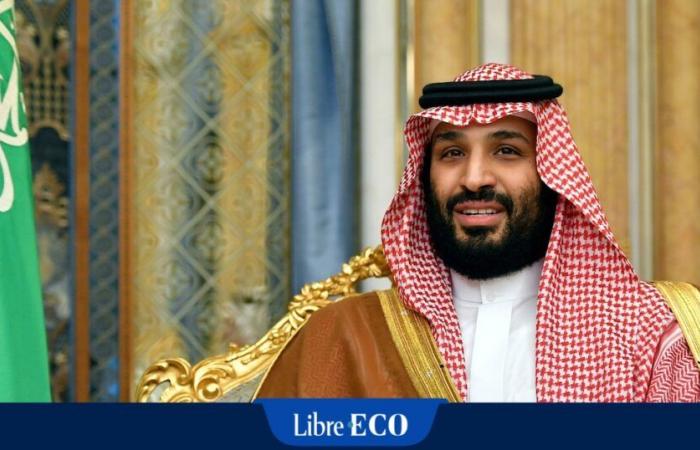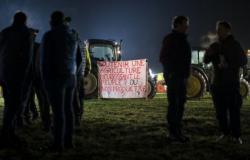
gull“The Vision 2030 plan aims to prepare for the long-term future of Saudi Arabia, but not only that. It also wants to meet the legitimate aspirations of the social emancipation of the population.”
Mohammed bin Salman’s “Vision 2030”
Saudi Arabia, through its Public Investment Fund, has been investing in sports for years. The Saudi football championship has several big football stars. Since 2021, a Formula 1 grand prix has roamed the avenues of Jeddah. But still, the WWE (wrestling league) has committed for ten years to staging two events per year in the country. There is no shortage of examples.
All this investment is the result of a more global project, which involves an economic and social transformation of the country. It can be summarized by the “Vision 2030” project, put forward by the Saudi Crown Prince, Mohammed bin Salman (nicknamed MBS). The latter affirms that the hydrocarbon economy is not eternal, and that it is time to prepare “Saudi Arabia after oil. Black gold indeed represents for the world’s largest oil exporter the exclusive origin of its fortune. “The Vision 2030 plan aims to prepare for the long-term future of Saudi Arabia, but not only. He also wants to meet the legitimate aspirations of social emancipation of the population.explains Vincent Juvyns.
gullThe Saudi government clearly saw what happened during the Arab Spring, and therefore wants to establish a living environment in which the population flourishes.
Mohammed bin Salman: Saudi crown prince, spoiled teenager and “macho” defender of women’s rights
The Saudi population numbers 38 million inhabitants, with a very large youth population. “They have high social aspirations. The Saudi government clearly saw what happened during the Arab Spring, and therefore wants to establish a living environment in which the population flourishes.describes this analyst again. For him, the Saudi “Vision 2030” plan is above all a means for the country to strengthen the social fabric of its population.
“This plan aims, for example, to facilitate access to real estate ownership for the middle class,” explains Vincent Juvyns, who notes strategic progress on the part of Saudi Crown Prince MBS on the issue of women’s rights. “At JPMorgan in Riyadh, 40% of employees are women. This surprised me, because in this society women are expected to have a secondary place. This evolution of the role of women in the world of employment is indicative of the country’s ambitions to meet the social aspirations of its population. If you want to buy a house, it works better when you have two incomes rather than one. And access to housing is an important point of the Vision 2030 plan.”he adds. Let us point out, however, that although Saudi women have emotionally gained many freedoms in recent years, their rights are still very far from being respected in all aspects of their lives.
Women, the new engine of Saudi Arabia’s economic development: “They really know what they want to do with their lives”
The ambition of the largest country in the Middle East is also to become a place conducive to expatriates. But faced with its big competitor Dubai, the task is not simple. “When a company wants to launch its activity in Saudi Arabia, it must set up its head office there. This is not trivial“, analyzes the man who today travels quite often to Riyadh, the Saudi capital. “Generally, companies moving to the Middle East opt for Dubai. This city is an example for the region: the United Arab Emirates has managed to create from scratch a relatively attractive place for expatriates. And Saudi Arabia tries, through economic and social reforms, to create a place of the same kind”, he explains.
Air conditioners are running at full blast in Saudi Arabia, where the summer is very carbon-intensive: “I don’t remember ever reading a meter”
When will the end of oil come?
Led by Saudi Crown Prince and Prime Minister Mohammed bin Salman, the “Vision 2030” project aims to prepare the country for the end of oil resources. The concept of peak oil has often been mentioned by experts, suggesting that global production of black gold would peak before declining. “I have to say that I have written about this peak oil theory myself.”Vincent Juvyns confides to us, not without embarrassment. “But this peak never happened, neither in Saudi Arabia nor elsewhere. We have never found so much oil as in fifteen years…”
Saudi oil giant Saudi Aramco invests millions of dollars in carbon capture technology
After peaking at 94 million barrels per day in 2019, followed by a decline during the pandemic, global oil production is indeed on the rise again. It could exceed 100 million barrels per day by 2028. While Saudi Arabia, the world’s largest exporter, has just discovered a promising new well. The country is not about to exhaust its resources. “There is no imminent risk that the country’s oil reserves will dry up“, analyzes Vincent Juvyns again, specifying that on the other hand, “there is a risk that demand will fall, especially in the West which is embarking on an energy transition that highlights renewables.”





